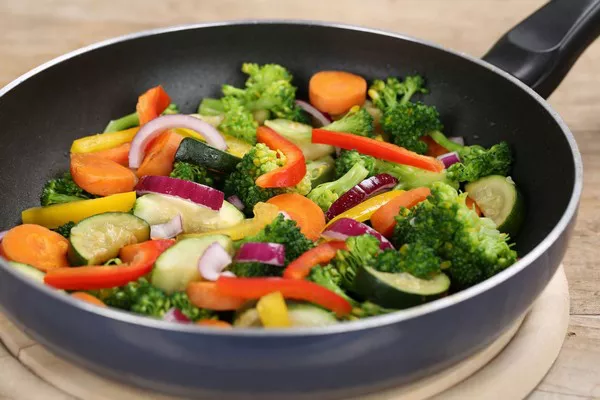Protein is an essential macronutrient that plays a crucial role in maintaining overall health and well-being. From repairing tissues to supporting the immune system, protein is involved in various physiological processes. Understanding the daily amount of protein required by individuals is vital for optimizing health and ensuring proper functioning of the body. In this article, we will explore the importance of protein, factors influencing protein needs, and guidelines for determining the optimal daily protein intake.
The Importance of Protein
Protein is made up of amino acids, which are the building blocks of the body. These amino acids are essential for cell repair, muscle growth, enzyme production, hormone regulation, and immune function. Proteins also act as a secondary source of energy when carbohydrates and fats are insufficient.
Factors Influencing Protein Needs
The daily amount of protein needed can vary significantly depending on various factors:
Age: Protein requirements change over a lifetime. Infants, children, adolescents, and pregnant or lactating women typically require more protein for growth and development.
Body Weight and Composition: Generally, individuals with higher body weight and lean muscle mass require more protein to maintain their tissues and support their metabolic needs.
Physical Activity Level: Athletes and individuals engaged in regular physical activity may need additional protein to repair and build muscle tissue.
Health Conditions: Certain medical conditions, such as kidney disease, may necessitate adjustments in protein intake.
Pregnancy and Lactation: Protein requirements increase during pregnancy and breastfeeding to support fetal growth and milk production.
Vegetarian or Vegan Diet: Plant-based diets may require careful planning to ensure adequate protein intake since some plant sources lack certain essential amino acids.
Injury or Illness: During recovery from injuries or illnesses, the body’s protein needs may be temporarily elevated.
Recommended Daily Protein Intake
The recommended daily protein intake is generally measured in grams per kilogram of body weight (g/kg). Several reputable health organizations have established guidelines for protein intake:
The Institute of Medicine (IOM): The IOM recommends a protein intake of 0.8 grams per kilogram of body weight for the average sedentary adult. This would equate to about 56 grams of protein per day for an average sedentary man and 46 grams for an average sedentary woman.
Sports Nutrition: For individuals engaging in regular moderate to intense physical activity or resistance training, protein needs may range from 1.2 to 2.2 g/kg of body weight, depending on the intensity and frequency of exercise.
Pregnancy and Lactation: Pregnant and breastfeeding women have increased protein requirements. The IOM suggests an intake of 1.1 g/kg during pregnancy and 1.3 g/kg while breastfeeding.
Vegetarians and Vegans: Plant-based eaters should aim for a slightly higher protein intake, as plant sources may be less concentrated in protein and may lack certain essential amino acids. A range of 1.0 to 1.3 g/kg is often recommended.
Elderly Individuals: Older adults may benefit from a slightly higher protein intake to offset age-related muscle loss. Aim for 1.0 to 1.2 g/kg of body weight.
Assessing Protein Intake
To ensure adequate protein intake, it is essential to monitor your dietary habits and calculate the amount of protein you consume each day. This can be done by reading nutrition labels, using food tracking apps, or consulting with a registered dietitian.
Protein Sources
Meeting daily protein needs can be achieved through a variety of dietary sources. Here are some excellent sources of protein:
Animal-based Sources: Meat (beef, poultry, pork), fish, eggs, dairy products (milk, yogurt, cheese), and seafood are rich sources of complete proteins containing all essential amino acids.
Plant-based Sources: Legumes (beans, lentils, chickpeas), nuts, seeds, tofu, tempeh, and whole grains are valuable sources of plant-based protein.
Dairy Alternatives: For vegetarians and vegans, soy milk, almond milk, and other fortified plant-based milk alternatives can provide protein.
Protein Supplements: Protein powders and bars can be useful for athletes or those who struggle to meet their protein needs through whole foods.
Potential Risks of Excessive Protein Intake
While protein is vital for health, consuming excessive amounts can have potential risks:
Kidney Strain: High protein intake may put strain on the kidneys, particularly for individuals with pre-existing kidney conditions.
Bone Health: Some studies suggest that very high protein intake may leach calcium from bones, potentially affecting bone health over time.
Weight Gain: Excess protein, especially from high-calorie sources, can contribute to weight gain if overall caloric intake exceeds energy expenditure.
Digestive Issues: Some individuals may experience digestive discomfort with very high protein intake.
Conclusion
Protein is an essential nutrient that plays a critical role in various bodily functions. Determining the daily amount of protein needed is influenced by factors such as age, body weight, physical activity level, and health conditions. While the average sedentary adult may require 0.8 grams per kilogram of body weight, individuals with specific needs, such as athletes, pregnant women, vegetarians, and older adults, may require higher protein intake.
As with any nutrient, balance is key. It is essential to consume a diverse array of protein sources to ensure a complete amino acid profile. If unsure about protein requirements or dietary choices, it is advisable to seek guidance from a registered dietitian or healthcare professional to tailor protein intake to individual needs, ensuring optimal health and well-being.


